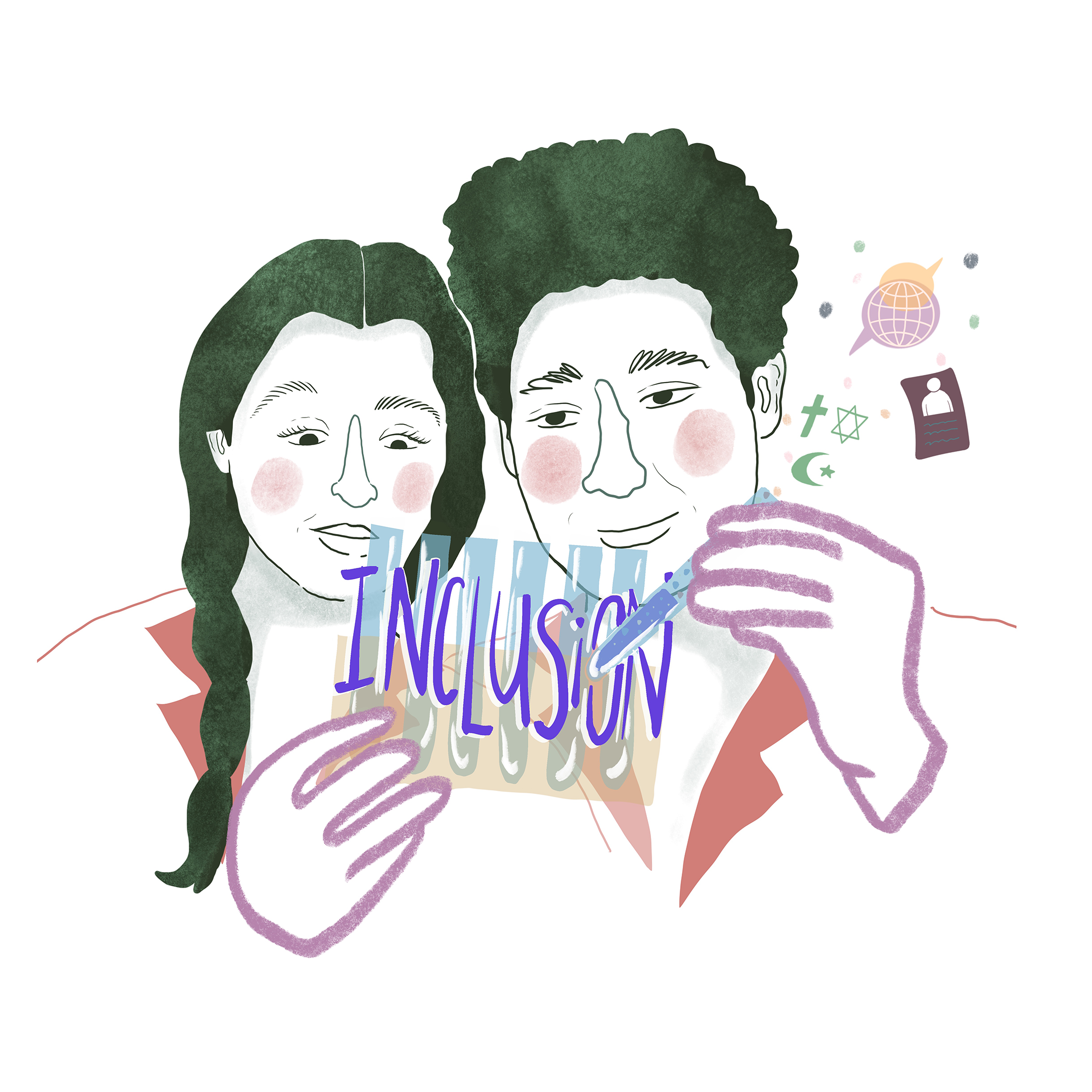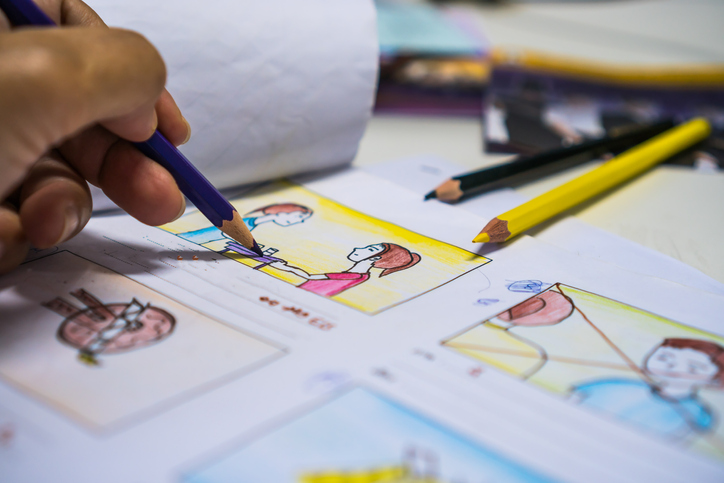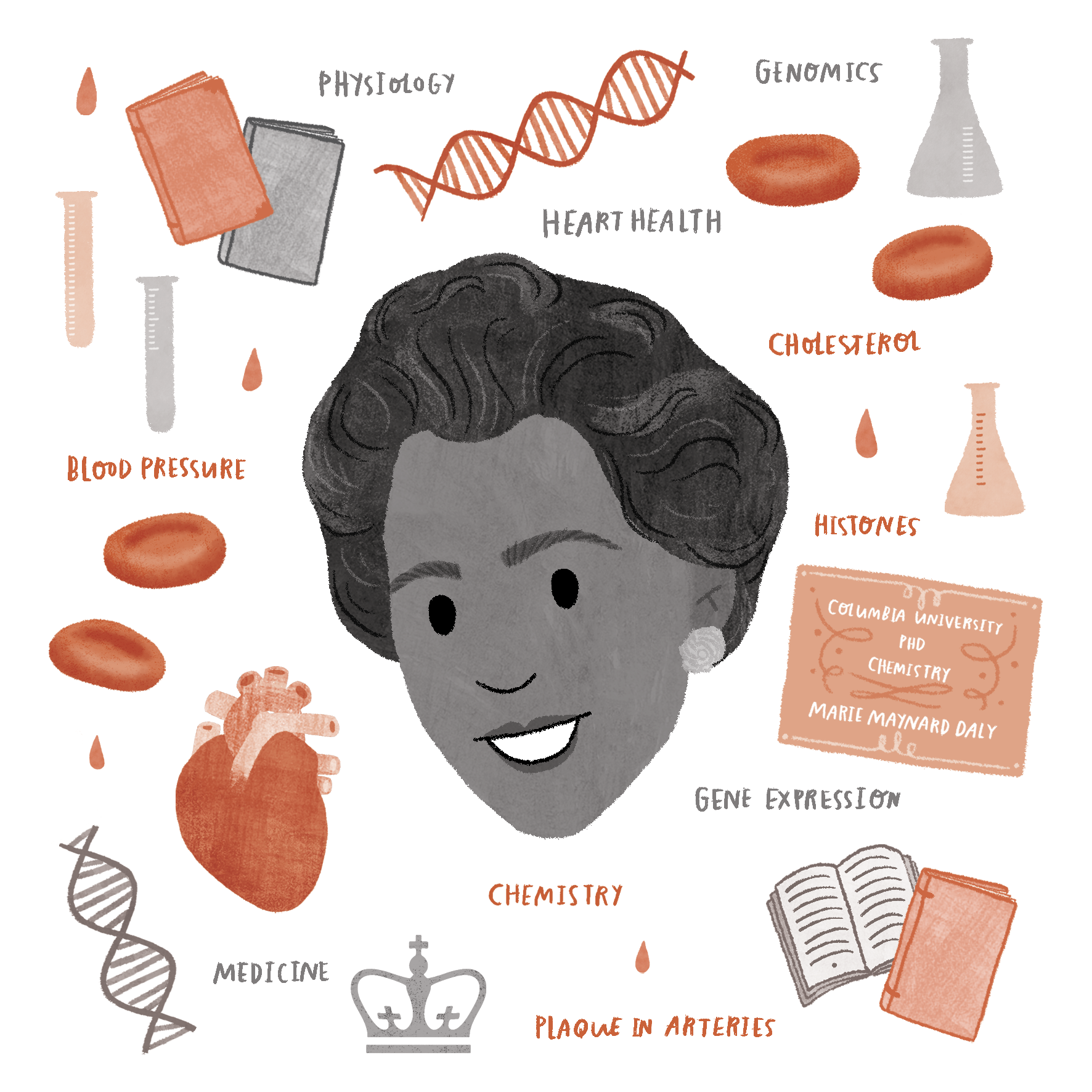You’ve had a stressful work week. It’s the weekend and you decide to explore the outdoors. The sky is blue, the birds are chirping, you’re sitting in a field strewn with wildflowers and the wind is blowing gently through your hair. Are your senses engaged? Would time spent in nature help you feel better?
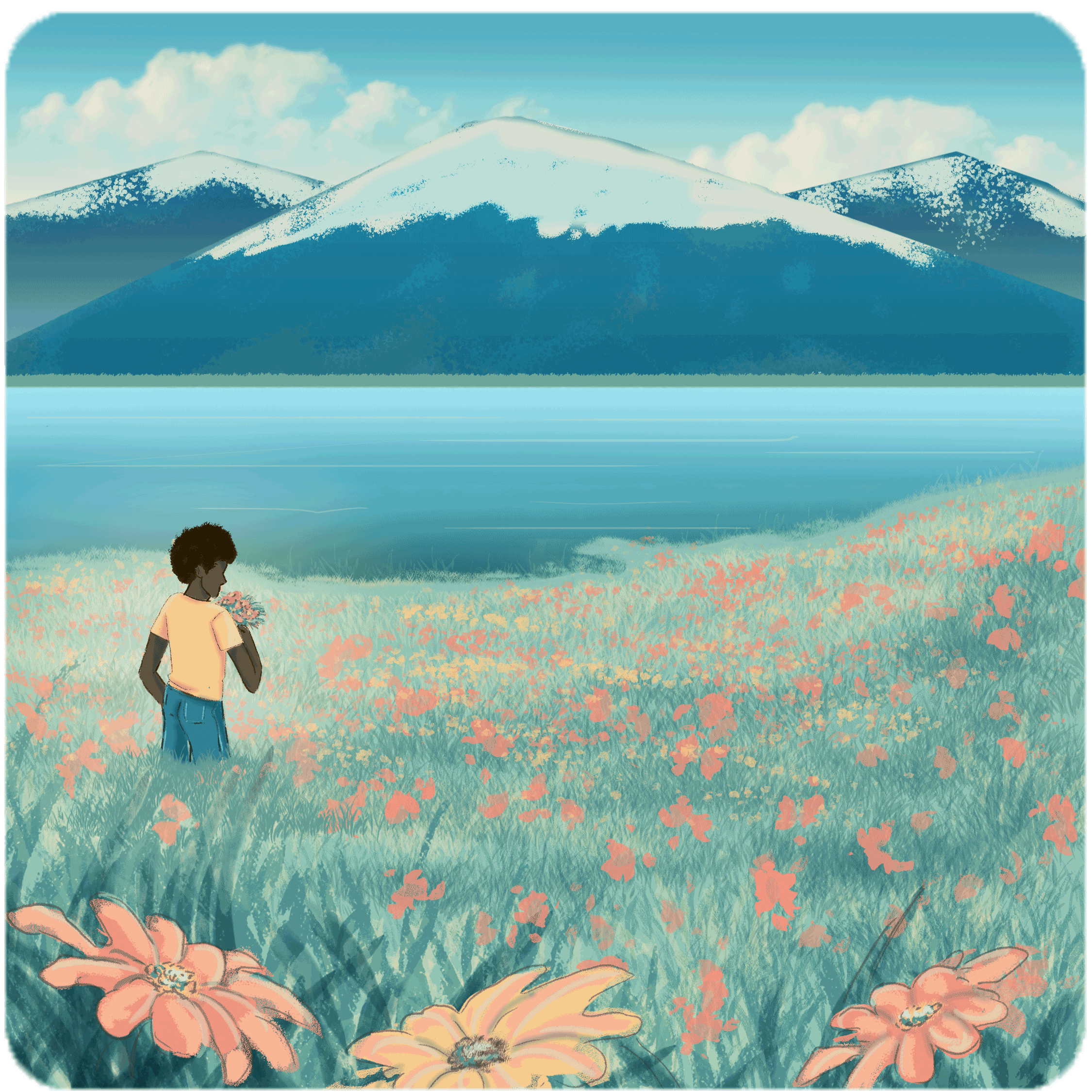
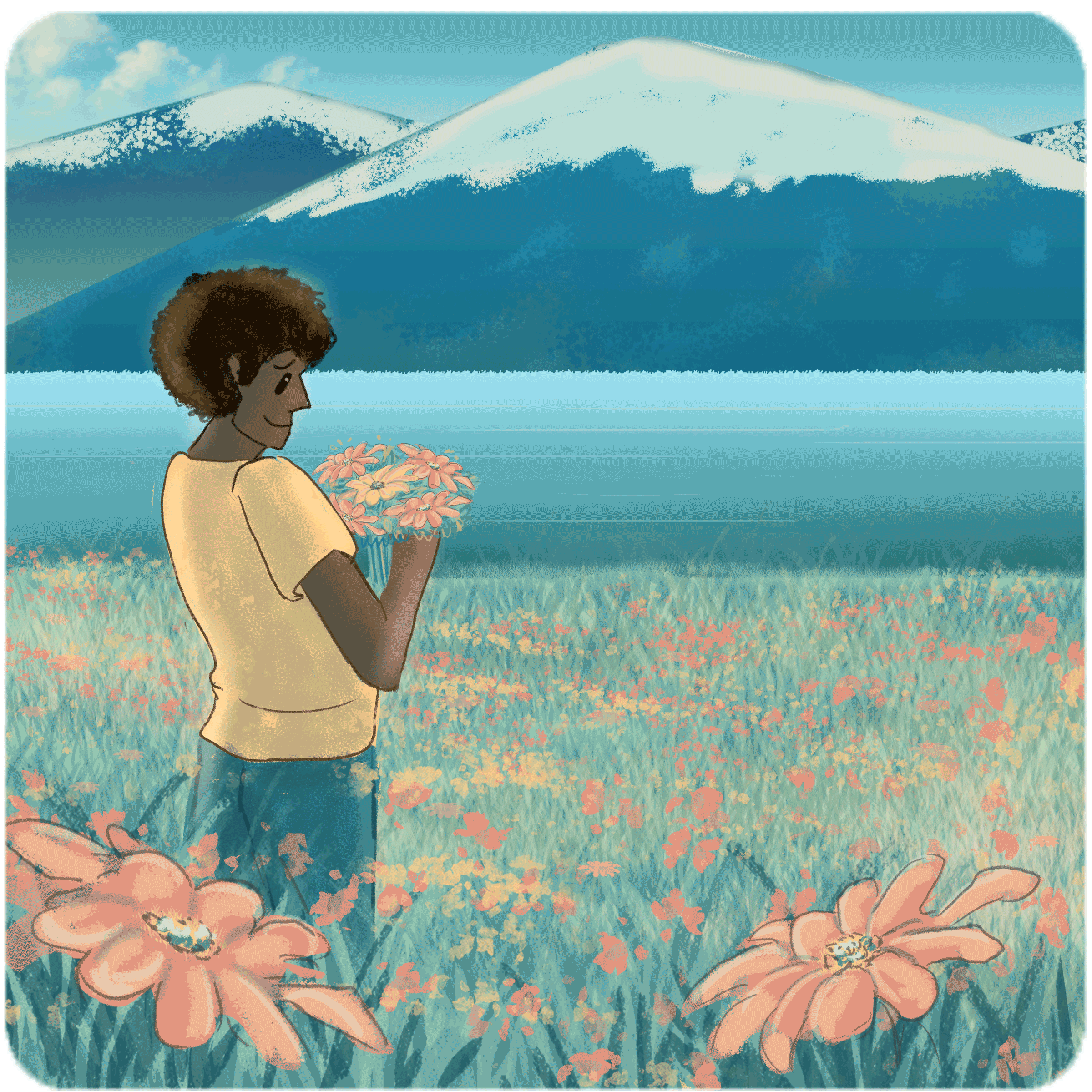
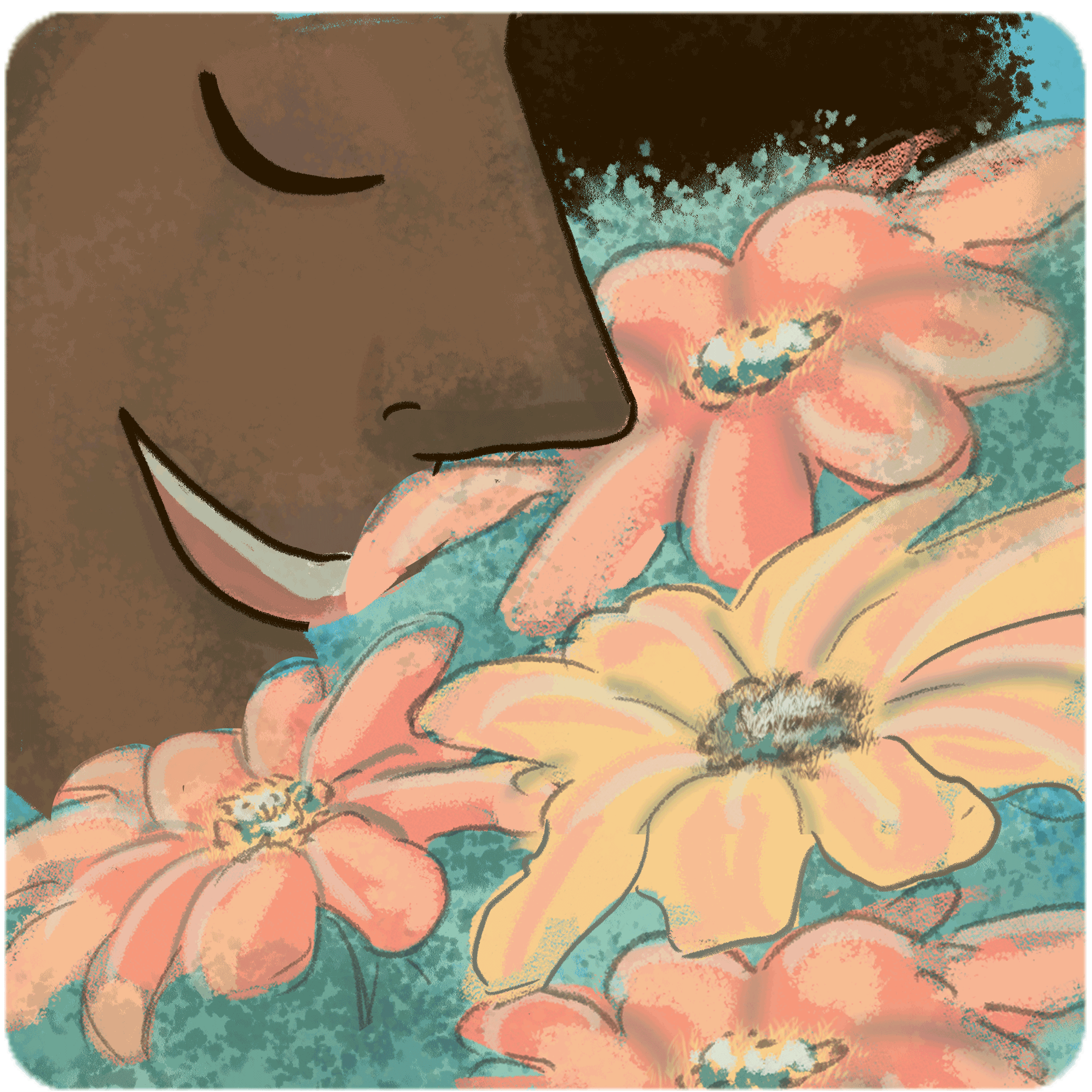
What is ecotherapy? (2022). Illustrations by Kayla O’Neal.
About ecotherapy
Ecotherapy, also known as nature therapy or green therapy, is based on the idea that people have a deep connection and are impacted by their natural environment on earth. Nurturing this connection can improve mental health.
Mental well-being can be boosted, even after short periods of time, through ecotherapy. It can appeal to the non-gym goer as a way of being physically active outdoors, think mindful walking. It can help isolated people feel more connected to the world around them. In fact, ecotherapy is beneficial for everyone. It is person-centered and empowering.
A growing body of research highlights the positive benefits of connecting with the natural world:
Chaudhury, P., & Banerjee, D. (2020). “Recovering With Nature”: A Review of Ecotherapy and Implications for the COVID-19 Pandemic. Frontiers in public health, 8, 604440. https://doi.org/10.3389/fpubh.2020.604440
Summers, J. K., & Vivian, D. N. (2018). Ecotherapy – A Forgotten Ecosystem Service: A Review. Frontiers in psychology, 9, 1389. https://doi.org/10.3389/fpsyg.2018.01389
Alvarsson, J. J., Wiens, S., & Nilsson, M. E. (2010). Stress recovery during exposure to nature sound and environmental noise. International journal of environmental research and public health, 7(3), 1036–1046. https://doi.org/10.3390/ijerph7031036
Chalquist, C. (2009). A look at the ecotherapy research evidence. Ecopsychology, 1(2), 64-74. https://www.centreforecotherapy.org.uk/wp-content/uploads/2021/07/Chalquist-evidence-into-effectiveness-of-ecotherapy.pdf
Introducing a new Lifeology Original course
“What is ecotherapy?” is a Lifeology Originals course written by Amy Lajiness, LCSW, PMH-C, an ecotherapist and psychotherapist practicing in San Diego. Amy integrates ecotherapy into her client sessions.
“With the option of bringing our therapy sessions outdoors, we allow nature to assist in the work of healing and overcoming life’s challenges”. —Amy Lajiness, LCSW, PMH-C.
The course outlines an activity that you can use in your daily life and includes a series of nature-inspired illustrations by artist Kayla O’Neal. Kayla is a member of the Guild of Natural Science Illustrators and the Society of Children’s Writers and Illustrators, and has experience animating and illustrating for SciComm topics.

